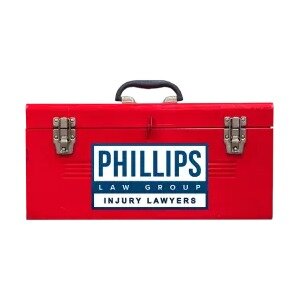Best Criminal Litigation Lawyers in Phoenix
Share your needs with us, get contacted by law firms.
Free. Takes 2 min.
List of the best lawyers in Phoenix, United States
About Criminal Litigation Law in Phoenix, United States:
Criminal litigation in Phoenix, United States involves legal proceedings related to criminal offenses. This area of law covers everything from minor misdemeanors to serious felony charges. The criminal justice system in Phoenix operates on the principle that individuals accused of crimes are innocent until proven guilty. If you are facing criminal charges, it is crucial to have a skilled criminal defense attorney to navigate the complex legal process and protect your rights.
Why You May Need a Lawyer:
You may need a lawyer in criminal litigation if you are facing criminal charges, whether misdemeanors or felonies. A lawyer can assist you with building a strong defense, negotiating plea deals, representing you in court, and advocating for your best interests throughout the legal process. Criminal cases can have serious consequences, including jail time, fines, and a criminal record, so it is essential to have a knowledgeable attorney by your side.
Local Laws Overview:
In Phoenix, criminal laws are governed by both state and federal statutes. Common types of criminal offenses in Phoenix include DUIs, drug charges, assault, theft, and white-collar crimes. The legal process in criminal cases typically involves arrest, arraignment, pretrial hearings, trial, and sentencing. It is important to understand your rights under Arizona law, including the right to remain silent and the right to legal representation.
Frequently Asked Questions:
1. What should I do if I am arrested?
If you are arrested, exercise your right to remain silent and ask for a lawyer immediately.
2. What is the difference between a misdemeanor and a felony?
A misdemeanor is a lesser criminal offense punishable by fines or jail time up to one year, while a felony is a more serious crime with potential imprisonment for more than one year.
3. Can I represent myself in a criminal case?
It is not recommended to represent yourself in a criminal case as the legal system is complex, and having a skilled attorney can greatly impact the outcome of your case.
4. How much does a criminal defense lawyer cost?
The cost of a criminal defense lawyer varies depending on the complexity of the case, the attorney's experience, and the location. Many attorneys offer free consultations and payment plans.
5. What should I look for in a criminal defense attorney?
Look for an attorney with experience in criminal defense, a good reputation, and a track record of success in similar cases.
6. Can charges be dropped before trial?
Charges can be dropped by the prosecutor before trial if there is insufficient evidence or if a plea agreement is reached.
7. What is the difference between probation and parole?
Probation is a sentence that allows individuals to serve their sentence outside of jail under certain conditions, while parole is early release from prison under supervision.
8. How long does a criminal case take to resolve?
The length of a criminal case can vary depending on the complexity of the case, the court's schedule, and other factors. Some cases may be resolved quickly, while others can take months or even years.
9. What is the role of a judge in a criminal case?
A judge presides over the courtroom, ensures a fair trial, rules on legal issues, and imposes sentencing if a defendant is found guilty.
10. What are my rights if I am questioned by police?
If you are questioned by police, you have the right to remain silent and the right to an attorney. It is important to exercise these rights to protect yourself during the investigation.
Additional Resources:
For more information on criminal litigation in Phoenix, you can contact the Maricopa County Public Defender's Office or the State Bar of Arizona for a list of qualified criminal defense attorneys.
Next Steps:
If you are facing criminal charges in Phoenix, United States, it is crucial to seek legal representation as soon as possible. Contact a criminal defense attorney for a consultation to discuss your case and understand your legal options. Your attorney can help build a strong defense, negotiate with prosecutors, and advocate for your rights in court. Remember, having a knowledgeable attorney by your side can make a significant difference in the outcome of your case.
Lawzana helps you find the best lawyers and law firms in Phoenix through a curated and pre-screened list of qualified legal professionals. Our platform offers rankings and detailed profiles of attorneys and law firms, allowing you to compare based on practice areas, including Criminal Litigation, experience, and client feedback.
Each profile includes a description of the firm's areas of practice, client reviews, team members and partners, year of establishment, spoken languages, office locations, contact information, social media presence, and any published articles or resources. Most firms on our platform speak English and are experienced in both local and international legal matters.
Get a quote from top-rated law firms in Phoenix, United States — quickly, securely, and without unnecessary hassle.
Disclaimer:
The information provided on this page is for general informational purposes only and does not constitute legal advice. While we strive to ensure the accuracy and relevance of the content, legal information may change over time, and interpretations of the law can vary. You should always consult with a qualified legal professional for advice specific to your situation.
We disclaim all liability for actions taken or not taken based on the content of this page. If you believe any information is incorrect or outdated, please contact us, and we will review and update it where appropriate.









